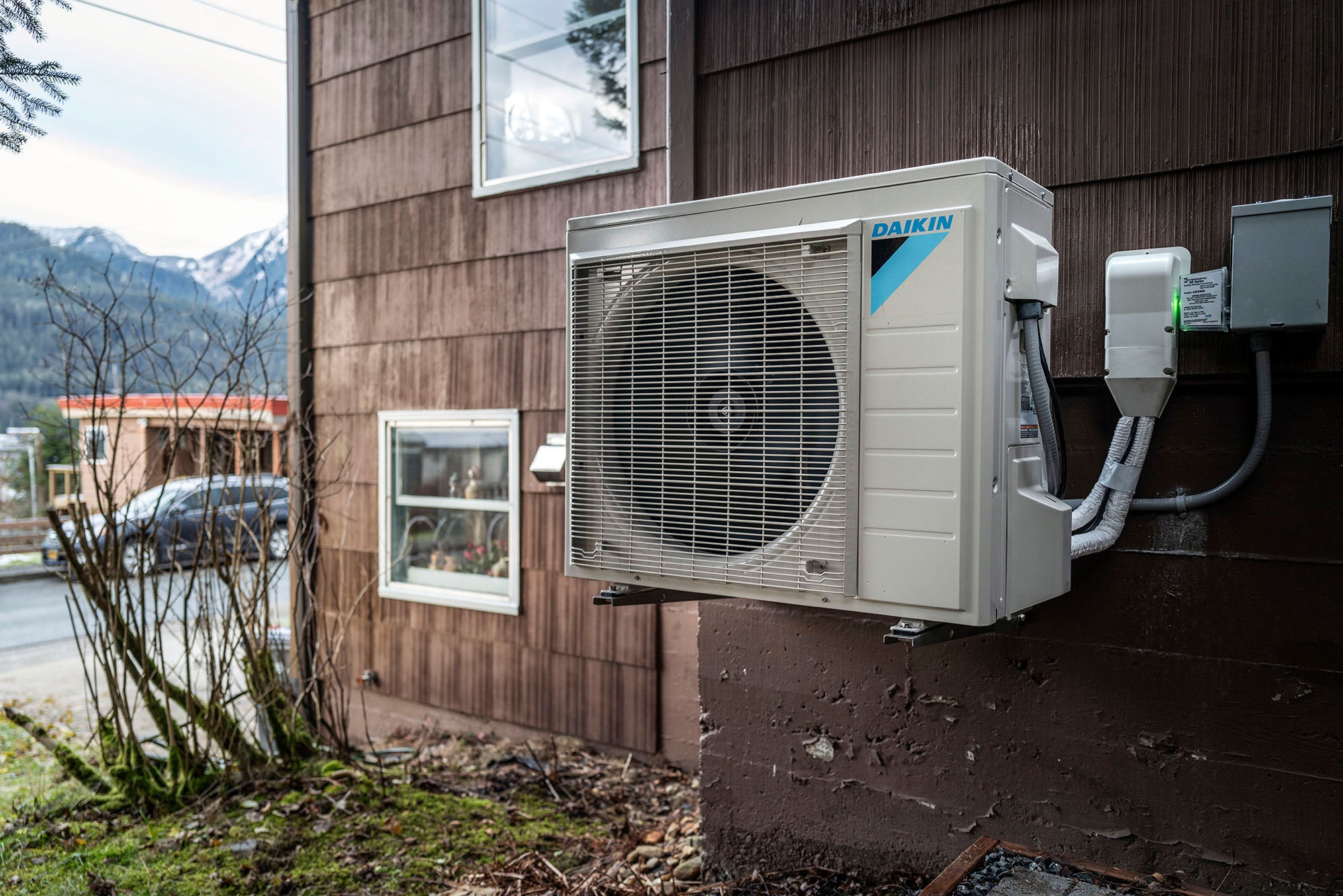Judge Denies Industry Challenge to Delay Implementation of Washington’s New Climate and Health-Friendly Building Codes
Victory
—New statewide building codes incentivizing heat pumps will take effect in mid-March
Contact
In another legal win for Washington’s new climate-friendly building codes – among the most progressive in the nation – a state judge today denied a legal challenge from gas and homebuilding industry petitioners seeking to block their implementation.
Today’s ruling means the new statewide building codes, which allow flexibility while incentivizing electric heat pumps over polluting methane gas in all new commercial and residential buildings, will take effect as planned on March 15, 2024.
The underlying legal challenge will continue, with a hearing on the merits later this year, but implementation of the codes will begin in the meantime, according to the judge’s ruling. In a ruling from the bench immediately following today’s hearing, Thurston County Superior Court Judge Carol Murphy said industry plaintiffs were not likely to prevail on the merits in the case, would not suffer irrevocable harm if the codes were implemented as planned and said delaying implementation would cause harm to other parties.
The long-awaited code update is viewed as a critical solution to improve public health and combat climate change. It will also help Washington meet its goal of zero fossil fuel emissions from buildings by 2031, set by state law.
Buildings are the second largest carbon-producing sector in Washington state next to transportation, with methane, a potent greenhouse gas, commonly used to heat and cool buildings, cook food, and heat water. Washington state building codes must be updated every three years with incremental reductions in emissions, according to state law.
“After years of technical work by the Washington State Building Code Council and an extensive public process, we’re finally seeing progress for Washington residents with the implementation of these progressive new codes,” said Jan Hasselman, Senior Attorney with Earthjustice. “Today’s court ruling is a win for anyone who cares about improving indoor air quality and protecting our climate.”
“These codes were written to comply with Washington state law mandating reductions in fossil fuel emissions from buildings, with the goal of reaching zero emissions by 2031,” said Naghmana Sherazi, Climate Justice Program Director, The Lands Council. “Industry representatives should stop trying to block these codes and instead support this inevitable and needed change supported by Washington residents to improve public health, save energy and costs over time, reduce air pollution and help the state meet its statutory climate targets.”
“Today’s ruling is a huge win for our clean air, our climate, and our communities,” said Dylan Plummer, Senior Field Organizing Strategist, Sierra Club. “The state building codes were designed to reduce harmful air pollution and climate emissions while increasing energy efficiency in new building construction and we are glad to see the courts continue to strike down attempts to delay progress in Washington.”
Background
Washington’s new building codes were initially set to take effect in July of 2023. Following a ruling by a federal appeals court in California overturning a City of Berkeley ordinance prohibiting fossil fuel piping in new buildings, the Washington State Building Code Council (SBCC) took additional time to revise the new building codes to ensure compliance with federal laws, including the Energy Policy and Conservation Act (EPCA). EPCA explicitly allows cities to electrify buildings through local building codes by setting overall efficiency standards that incentivize highly efficient electric appliances like heat pumps over inefficient appliances that burn fossil fuels. States can also establish indoor air quality standards that also favor electricity over polluting methane gas.
The SBCC amended its codes accordingly and then adopted those revisions in late November 2023, setting an implementation date of March 15, 2024.
Homebuilding and gas industry representatives have filed two separate legal challenges trying to block implementation of Washington’s new state building codes – one in federal court and the challenge ruled on today in state court.
In July 2023, a U.S. District Court judge in Eastern Washington denied a similar challenge from gas industry representatives seeking to block implementation of the new building codes. In that ruling, Chief Judge Stanley Bastian said the industry plaintiffs’ claimed harms were “purely speculative” and said the court should “stay out of the way” of Washington State as it addresses climate change through building code revisions. Following that ruling, gas industry plaintiffs dropped that lawsuit in August 2023. A separate group of petitioners then renewed their legal challenge in state court, raising separate claims under state law.
Litigation challenging climate- and health-friendly building codes is part of a broader fossil fuel industry strategy seeking to delay urgently needed climate and public health action across the nation. Climate and health advocates, and other states and local governments hoping to enact similar building codes are heralding Washington’s new codes as encouraging forward movement in support of building electrification.
The case is Northwest Regional Council of the National Construction Alliance v. Washington State Building Code Council, Case No. 23-2-00615-34 (Thurston County Superior Court). Climate Solutions, Lands Council, Sierra Club, Washington Physicians for Social Responsibility, and NW Energy Coalition have intervened in the case to defend the codes. They are represented by attorneys Jan Hasselman, Noelia Gravotta, and Molly Tack-Hooper from Earthjustice.

Additional Resources
About Earthjustice
Earthjustice is the premier nonprofit environmental law organization. We wield the power of law and the strength of partnership to protect people's health, to preserve magnificent places and wildlife, to advance clean energy, and to combat climate change. We are here because the earth needs a good lawyer.